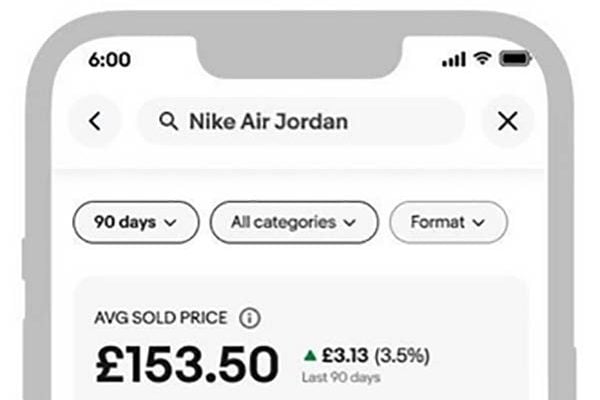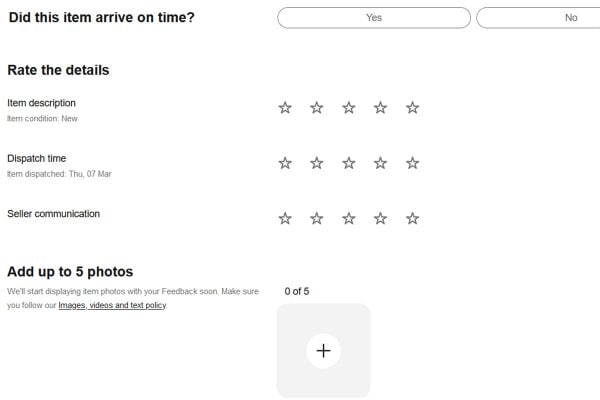This is a guest post by Jonathon Butterworth. He is a freelance logistics writer with a keen interest in eCommerce. He is currently writing in conjunction with Parcel2Go.
A new policy which eBay claims has resulted in increased sales conversions, reducing operating costs, and improving the quality of customer feedback would, you might think, be welcomed by sellers using the site with open arms.
But the company’s new Managed Returns policy is, at the time of writing, causing a great deal of uncertainty among seasoned eBay merchants, due to a number of unanswered questions remaining from eBay’s own announcement.
Effective immediately for new sellers, the main sources of contention in the changes include that they must sign up to eBay’s returns programme, rather than instigate their own procedures. eBay itself says that the policy “is designed to give buyers a consistent way to initiate returns, no matter which business seller they buy from”.
At the same time as announcing that the policy would be immediately implemented for new sellers, eBay also gave notice that the conditions would apply to existing sellers from February 17.
Increased cost
Some sellers voiced concerns that, by being forced to follow eBay’s prescribed policy, they would also have to use eBay’s designated courier service for their returns. This could well be despite them having established long-standing relationships with other shipping companies, and therefore having to pay more for their second-time deliveries.
No-quibble
But the overriding concern of sellers over the policy is that it won’t require buyers to give any reason for returning goods, yet the seller will still be required to provide redress either in the form of a replacement product, or a full refund.
While many sellers operate such a ‘no quibble’ returns policy, however, many currently place a strict time limit on claims which can be made under its provisions.
One provision of the changed conditions which could work in favour of sellers is that the time limit for the instigation of a case under the eBay money back guarantee is set to be lowered from 45 to 30 days after the estimated or actual delivery date.
Who will the policy apply to?
In the early days following the announcement, this was one of the biggest sources of confusion. The official announcement didn’t indicate which sellers, or categories of products, would be obliged to use the new formal policy.
With no indication of whether the policy would be applied to sellers by the types of goods they sell, or how they conducted their eBay account, the uncertainty which surrounded the policy’s introduction in the United States – and which has been the subject of wide debate – still exists in the months leading to its application in other markets, including the UK.
eBay’s promise
While it has not clarified any of these points, it has provided a statement to Tamebay’s Chris Dawson, in which it promises that a full announcement will come with the company’s next official Seller Release, due in March, which also promises: “Sellers will receive a minimum notice period of 60 days before the change is introduced”.
Yet despite all the reservations over the policy, and the way in which it is being introduced, there are still worries that it may come into effect as early as mid-February.
All this leaves the key questions still unresolved, at the time of writing, which is almost exactly one month before the date when eBay is planning to roll out its new returns rules to all sellers of its UK website.









7 Responses
It’s crazy for sellers of small-value goods like me. My no-quibble policy is that if a customer is unhappy with my product for *any* reason, any reason at all, he gets a refund *and* he gets to keep the product. My highest-priced item is a DVD-ROM of image files for £4.99. It’s simply not worth either mine or the buyer’s while to have to return it. Right now, a disappointed customer costs me only the price of the disc, the package and the stamp. If he has to return it, it will actually cost me more than all that is worth. Bad news for me, I think….
At the same time as announcing that the policy would be immediately implemented for new sellers, eBay also gave notice that the conditions would apply to existing sellers from February 17′
That is somewhat scaremongering! eBay already have the (a) managed returns policy in place, it can be read here:
https://pages.ebay.co.uk/help/sell/return-process.html
It is currently an opt in / opt out seller choice.
Nowhere has it been written that it will be forced on any seller from 17th February.
On the PSB it has been stated that further carriers, presumably at better rates than the wildly high ones quoted already, will be added.
I do perhaps anticipate that eBay will be putting some more bones on the statements that you quote and questions that you raise together with a more realistic rate card. I expect a partial implementation to ‘some sellers’ / in ‘some categories’ later in the year.
Nonetheless as far as I am concerned if eventually implemented as already written eBay can take a hike!
It is a great post really it is Effective immediately for new sellers, the main sources of contention in the changes include that they must sign up to eBay’s returns program me, rather than instigate their own procedures. eBay itself says that the policy is designed to give buyers a consistent way to initiate returns, no matter which business seller they buy from.
I do not understand how this can possibly avoid being classed as a Restrictive Trade Practice and how it can possibly comply with Articles 85 and 86 of the EU Competition Laws from the Treaty of Rome.
It seems to me it does several things :
1. Forces the customer (seller) to pay a higher than necessary price for returns. Is therefore effectively price fixing
2 Restricts competition
3 Is illegal market sharing between ebay and their supplier
4 Could be regarded as discriminatory pricing
It’s another clear case of eBay looking after their own interests first at the expense of their customers (The Sellers). eBay claim to have seller protection policies in place but most sellers are already aware that there is far more protection for the buyer than the seller. eBay have openly admitted to me (verbally only of course) that their policies leave their marketplace open to abuse and that sellers will always end up being penalised in certain cases. Even when we, the Sellers, try to suggest sensible solutions that would give the Sellers more protection they choose to ignore them because they know that by giving their sellers proper protection they would disgruntle would be buyers who wish to abuse the eBay marketplace and eBay don’t want to be seen to be deterring any buyers, no matter how devious they are, from using their site. The bottom line is that they have the sellers by the short and curlies and they know it. Meanwhile you can still get items for nothing on eBay if you follow the ‘Buyer protection policy rules’ and now you can also get an item, use it and return it… at the Sellers expense! No wonder people love buying on eBay.